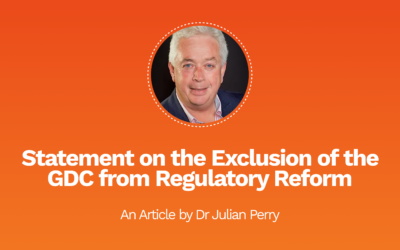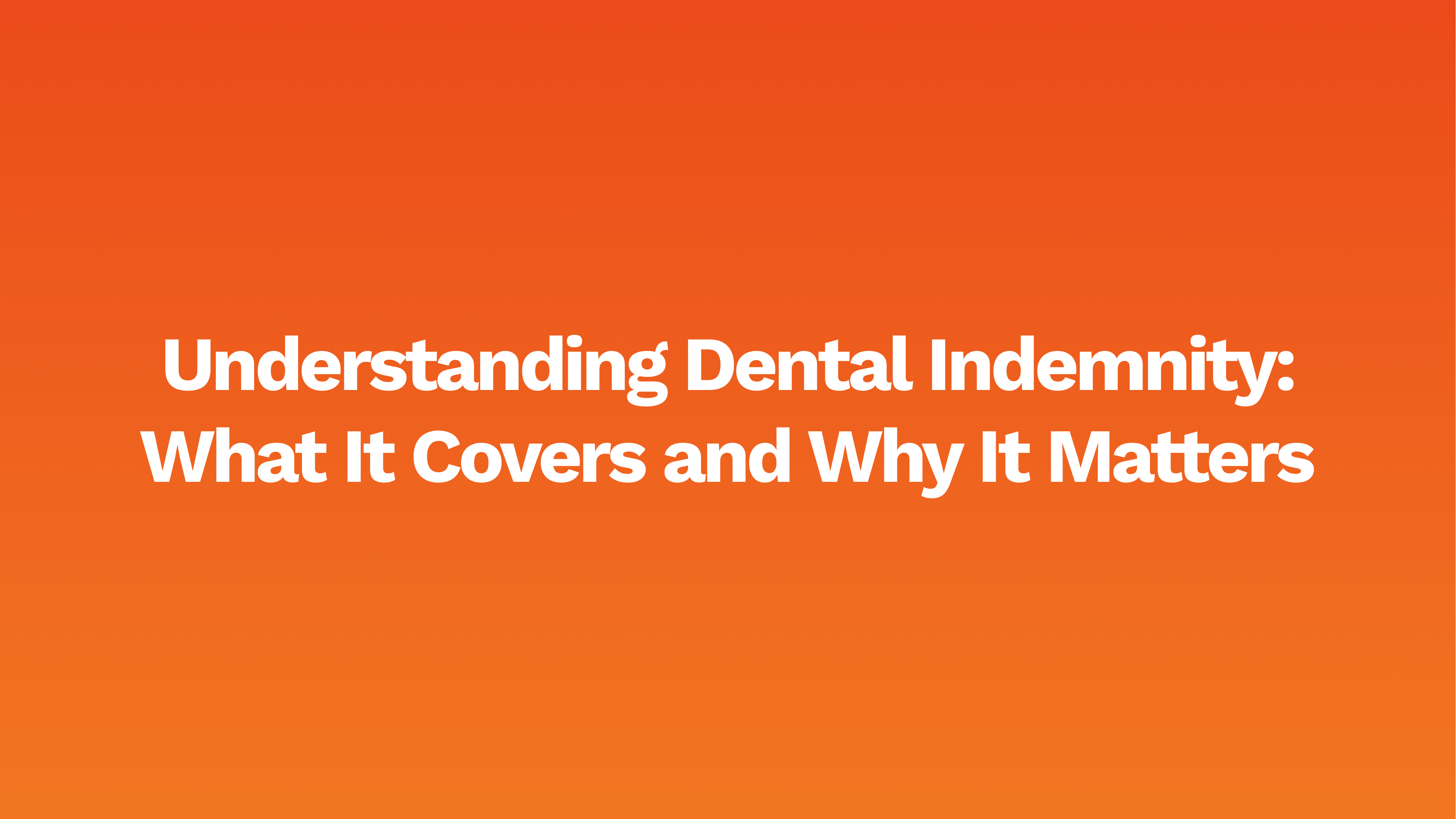77% of dentists feel they are practising defensive dentistry – it’s no surprise, considering that medical indemnity claims are increasingly being brought by patients, a rise which shows no signs of stopping. But what is defensive dentistry? Are you practising in this way and – if so – what can you do about it?
In its simplest form, defensive dentistry is when a clinician departs from their standard practice and acts in such a way as to avoid patient claims – for instance, avoiding complicated or ‘high-risk’ procedures because you’re worried about potential negative consequences, taking more tests than necessary, or referring a patient to avoid treating them yourself.
We don’t deny that dentistry is a stressful job. Each day is filled with a unique set of challenges and pressures. The fear of potential litigation is real and can cloud your judgement in more ways than one – our team of legally trained, practising dentists know this better than anyone.
As a clinician, it often feels like you’re working under a microscope. Whether it’s the GDC, patients or even colleagues, we are routinely monitored and questioned over minute elements of practice.
But in the midst of this pressure-cooker environment, it’s important to remember that your patients should always come first. Letting the ‘what if’s?’ affect the timing, quality, and confidence of your treatment decisions will often cause more damage than good.
Failure to act in a timely manner due to fear could mean a patient’s condition worsens. At the very least, they’ll feel that they’ve been messed around – and you’ll take the blame.
Considering this, we’re sure you’ll agree that defensive dentistry isn’t the way to protect yourself against rising indemnity claims. But prioritising the medical needs of your patient, paying attention to detail, practising ethically, and investing your time in training? These are all fool proof ways of minimising your risk of litigation.
It goes without saying that you should always have a watertight medical indemnity insurance policy in the unfortunate event of a claim – this will help to put you at ease, meaning you’re less inclined to practice defensively.
At Densura, we offer you proper insurance which covers you after you cease practising. It also covers vicarious liability and is provided by experts who have your interests at heart – always.
If you want to learn more about our bespoke cover or request a call back, visit our website.
Author: Densura



